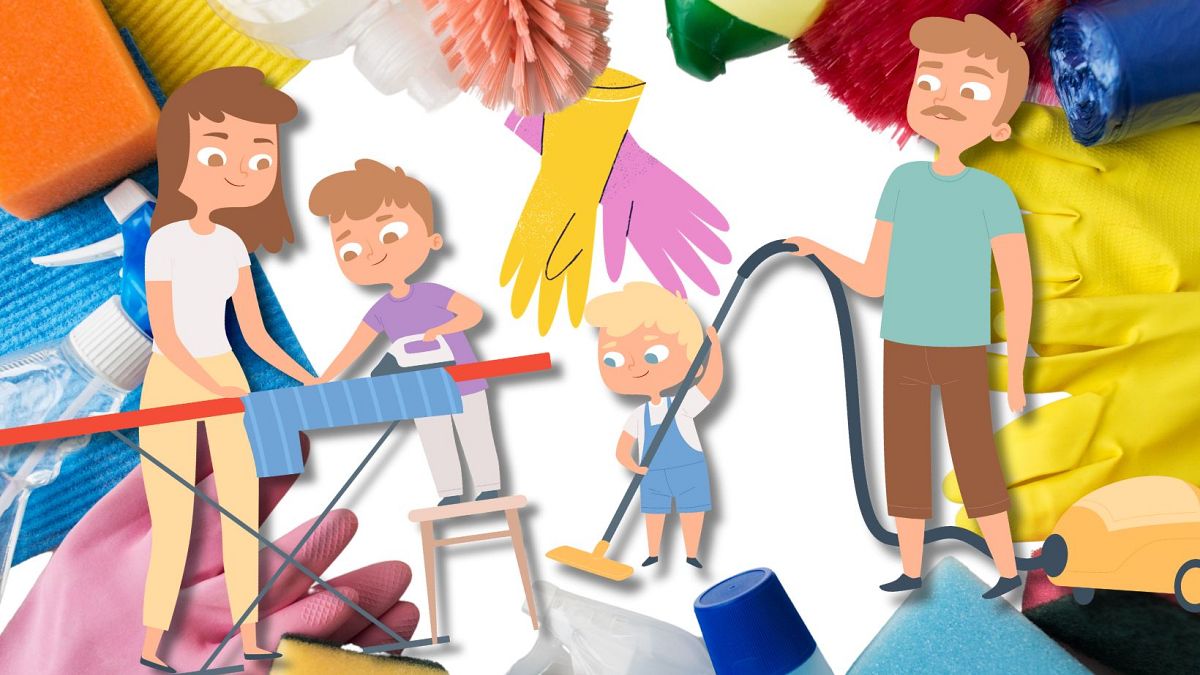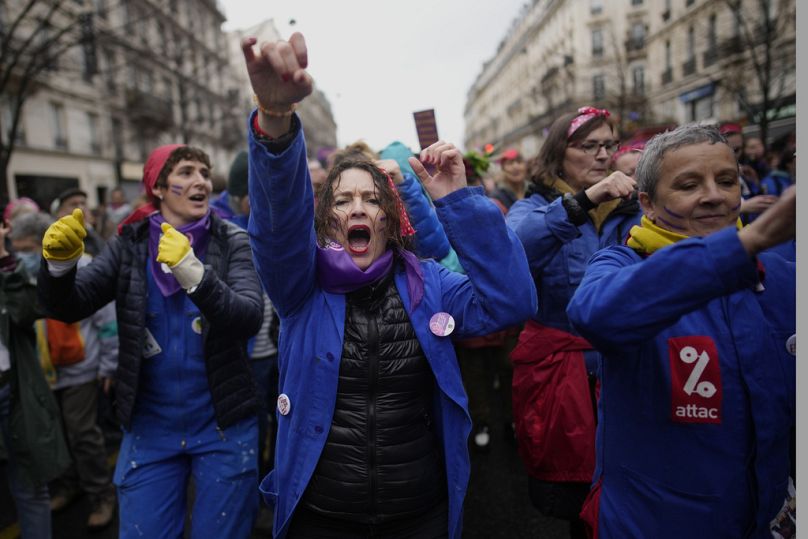As a new poll has revealed housework and childcare in the UK remains unequally split between men and women - and the picture is often bleaker across Europe.
Nobody enjoys doing household chores - but a new survey has revealed that, in the UK, women still do a disproportionate amount of the often thankless tasks compared to men.
The British Social Attitudes Survey (BSA) found that more than three-quarters of respondents said that domestic labour should be split - but some two-thirds of women still do more than their fair share of cleaning and cooking.
The survey results do give some hope to those battling for gender equality, though.
In the mid-1980, 48% agreed with the statement "a man's job is to earn money and a woman's to look after the home. This year, just 9% agreed - and 32% of men questioned admitted they do less around the house than they should.
In 1983, when the BSA survey began, female employment for women between 16 and 64 was just 54% - it’s now risen to 72% and many mothers who would traditionally have stayed at home now choose to go back to work after giving birth.
Differences across Europe
In mainland Europe, however, the picture is often very different to the UK.
According to statistics put out by the European Institute for Gender Equality (EIGE) in 2021, housework, childcare and looking after people with disabilities and other chronic conditions are still the most unequally shared tasks across the continent.
The EIGE found that around 91% of women with children spend at least an hour each day on housework - and that figure drops to 30% among men with children.
The research revealed that much of that unequal division of labour is down to entrenched gender roles passed from mothers to daughters and fathers to sons.
Education levels play a role too.
Women with more education spend less time on housework but, in the case of men, the opposite is true.
The EIGE found that highly skilled employed women frequently outsource household chores to cut their time on housework whereas men appear to be loath to spend money on tasks they can apparently do themselves.
Across Europe, many countries have seen a recent rise in gender balance in decision-making and taking responsibility for housework.
Over the last decade, France, Luxembourg, Italy, Germany and Spain have all seen a marked increase in equality in the home.
At the other end of the scale, Czechia, Hungary, Romania, Slovenia and Bulgaria have all regressed in terms of levelling the playing field in the power balance between genders.
Around Europe, statistics show that, on average, 79% of women (with or without children) undertake household chores and cook on a daily basis, compared to just 34% of men.
That gap is the smallest in Sweden. In the Scandinavian nation, 74% of women do perform these tasks on a regular basis - but 56% of men chip in too.
On the other side of the gender equality coin is Greece.
There, 85% of women are tasked with chores whereas just 16% of men ever help out.
Childcare - a women's 'job'?
When it comes to parents, there is - perhaps unsurprisingly - a much larger share of women looking after their children than their male equivalents.
Around 93% of women aged 25 to 49 who have children under 18 took care of their children on a daily basis, compared to only 69% of men.
In Greece, the disparity is exceptionally wide with 95% of women taking charge of their children juxtaposed with 53% of men.
Malta has similar figures whereas Sweden (96% of women and 90% of men) and Slovenia (88% and 82%) are far more equal in terms of gender balances in childcare.
Overall, there’s a marked difference across the continent and in certain regions.
It seems as if Scandinavian nations - closely followed by many in the east of Europe - are more comfortable with sharing traditionally ‘female’ roles, with western countries slightly behind. It is southern Europe which is lagging in this ranking. The reasons as to why are not entirely clear, although one reason seems to be the more religious a country, the more entrenched this gender imbalance becomes.

